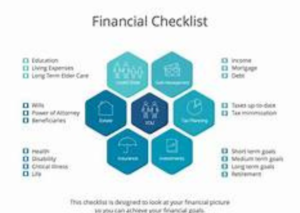How to become a financial adviser
A financial adviser is critical in guiding individuals and businesses through the complex maze of economic decisions. This can include providing financial advice on wealth management, retirement planning, insurance products, debt solutions, and much more.
 If you’re the kind of person with an analytical mind, a knack for understandably explaining complex topics, and a desire to help others achieve their financial goals, a career as an economic adviser might be the perfect fit.
If you’re the kind of person with an analytical mind, a knack for understandably explaining complex topics, and a desire to help others achieve their financial goals, a career as an economic adviser might be the perfect fit.
The following guide explains how to become a financial advisor in the UK. It covers the qualifications and skills required, the salary range, potential career progression options, and the likely working hours and environments.
Becoming a financial adviser in the UK involves a mix of formal education, work experience, and obtaining regulatory approvals. This career path is intellectually and financially rewarding but requires an unwavering commitment to continual learning and compliance with industry standards.
Work Experience
Prior work experience in a related role, such as in customer service, accountancy, or sales, can be beneficial. Some firms also offer apprenticeship programs, though competition for these positions is usually high.
What are the primary skills needed to become a financial advisor?
It would help if you had many essential skills and knowledge to work as a financial adviser. These skills will help you work effectively for your clients and help you earn the most within your role.
Some of the critical you will need to be a successful financial adviser include:
- Good consumer service skills and the ability to explain complicated financial matters and products to your clients.
- Thorough knowledge of financial products, legislation, and tax matters.
- An ability to work in a heavily regulated environment.
- The ability to maintain standards no matter the industrial, compliance, or legislative changes that occur.
- Solid maths skills.
- Sales skills and a solid ability to negotiate terms and prices with clients and providers.
- The ability to build a good rapport with clients and colleagues.
- The capability to examine large amounts of financial information.
- Report-writing skills and the ability to maintain thorough records.
What are the different types of financial advisers?
Understanding the landscape of financial advising involves knowing the different types of financial advisers available. In the UK, advisers generally fall into one of the following categories:
Independent Financial Advisers (IFAs)
- Whole-of-Market: IFAs have the flexibility to provide advice on products from across the entire financial market rather than being tied to any specific company.
- Fee-Based: Typically, IFAs charge a fee rather than a commission for their advice. This can help make sure that their advice is unbiased.
Restricted Advisers
- Single Provider: These advisers are tied to one financial institution and can only recommend products offered by that institution.
- Limited Range: These advisers can offer advice on a restricted range of products or providers but need more flexibility than an IFA.
Multi-Tied Advisers
These advisers have agreements with multiple providers but are limited to a specific range of products. Their advice is narrower than that of IFAs but offers more variety than single-provider restricted advisers.
Specialized Financial Advisers
Some financial advisers choose to specialize in specific areas of the financial industry, such as:
- Pensions Advisers: Specialise in retirement planning and pension transfers.
- Investment Advisers: Focus on asset allocation and investment portfolios.
- Mortgage Advisers: Specialise in providing advice on mortgage products.
- Tax Advisers: Primarily focused on optimizing clients’ tax positions.
In-House Advisers
These advisers work within a financial institution like a bank or an investment firm, usually as part of a larger advisory team. Their advice may be restricted to the products and services offered by their employer.
Self-Employed Financial Advisers
These advisers operate independently or under a smaller firm. Depending on their qualifications and FCA registration status, they can set their hours and offer a broader range of services.
 What are the essentials needed to become a financial advisor?
What are the essentials needed to become a financial advisor?
Financial advisors require education, certifications, skills, and practical experience. Here are the fundamental essentials to becoming a successful financial advisor:
- Education
- Bachelor’s Degree: Most financial advisors start with a degree in a related field, such as:
-
- Finance
-
- Economics
-
- Accounting
-
- Business Administration
-
- Mathematics This provides foundational knowledge of financial markets, investments, and economic principles.
- Certifications and Licenses
Financial advisors must often acquire certifications and licenses to operate and build credibility legally.
- Certified Financial Planner (CFP): One of the most recognized certifications. It involves coursework in investment planning, estate planning, tax management, and retirement planning. To become a CFP, you must pass an exam, have relevant work experience, and follow a code of ethics.
- Series 7 and Series 63 or 66 Permits: These are required to sell securities like stocks, bonds, or mutual funds. The Monetary Industry Regulatory Authority (FINRA) oversees these certifications.
-
- Series 7: Allows you to buy and sell all types of securities products.
-
- Series 63 or 66: Required for state-level securities registrations.
- Chartered Financial Analyst (CFA): This certification is highly respected, especially for those involved in investment analysis and portfolio management.
- Other Certifications:
-
- Chartered Financial Consultant (ChFC)
-
- Chartered Life Underwriter (CLU)
-
- Certified Public Accountant (CPA) for advisors offering tax planning.
- Experience
- Internships or Entry-Level Positions: Many financial advisors start as paraplanners, financial analyst assistants, or in similar entry-level roles. This hands-on experience helps develop client relations, investment research, and portfolio management skills.
- Advisory Experience: Many firms or certifications (like the CFP) require candidates to complete several years of experience before becoming certified advisors.
- Skills
- Analytical and Problem-Solving Skills: Financial advisors need to analyze data and create financial plans that fit their client’s unique needs.
- Communication and Interpersonal Skills: You’ll need to explain complicated financial concepts to clients in a way they can understand, build trust, and maintain strong client relationships.
- Sales Skills: Financial advising often involves selling financial products (insurance, investment portfolios, etc.), so sales experience is beneficial.
- Time Management and Organization: Advisors often manage multiple clients and must stay organized with financial plans, reports, and client communication.
- Ethical Judgment and Compliance Knowledge: Adherence to laws and regulations and maintaining the ethical standards expected in the profession is crucial.
- Understanding Regulations
- Know the Legal Environment: Advisors must stay informed on financial regulations, especially those from the Securities and Exchange Commission (SEC), FINRA, and other governing bodies.
- Fiduciary Duty: Some financial advisors are held to a fiduciary standard, meaning they must act in the best interest of their clients, which requires understanding the legal responsibilities involved.

- Business Development
- Client Acquisition: Building and maintaining a client base is essential. Many financial advisors must network, cold call, or use digital marketing techniques to attract clients.
- Entrepreneurship: If you plan to work independently or start your financial advisory firm, you’ll need entrepreneurial skills to manage your business, including client management, marketing, and operations.
- Continuing Education
The financial landscape constantly evolves, with new regulations, investment products, and planning strategies. Financial advisors must engage in ongoing education to stay updated with industry trends, especially to maintain certifications like the CFP.
By following these steps, you’ll be well-equipped to prove a successful career as a financial advisor, whether you work independently or with a firm.

